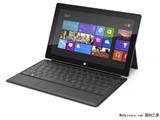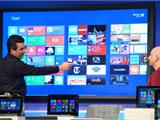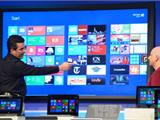Android Drives 36% Year-over-year Tablet Sales Growth in Q3
The latest research report from market research company IDC revealed the device sales situation of global tablet suppliers in the third quarter: In short, Android tablet sales increased, iPad sales fell, and Windows tablets are still "struggling to attract users."
In fact, analysts believe that Android was the main driving force behind the development of the entire tablet market in the third quarter. In the third quarter, overall tablet market sales increased by 7% quarter-over-quarter and by 36.7% year-over-year.
The growth in Android tablet sales can be attributed to multiple factors: First, its widely-used Android operating system played a positive role; secondly, the participation of some heavyweight device suppliers like Samsung and Amazon also contributed to this growth.
In terms of contributions from device suppliers, Samsung ranked second. In the third quarter, it sold 9.7 million units, capturing 20.4% of the global market share. Meanwhile, Asus, the manufacturer of the Nexus 7, sold 3.5 million tablets, taking up 7.4% of the global market share.
Tablets categorized under "Other" held 35.3% of the global market share but saw a year-over-year decline of 38.8%.
However, even though Apple did not launch any new tablets in the third quarter, it remained the largest global tablet supplier. In that quarter, iPad sales reached 14.1 million units, slightly down from 14.6 million units in the same period last year. Nevertheless, Apple's market share was 40.2% a year ago, while at the end of the third quarter, it had dropped to just 29.6%.
It is worth noting, however, that Apple only unveiled new products last week. With the launch of the iPad Air this Friday and the Retina iPad mini coming in November, there will likely be significant changes in sales figures for the fourth quarter.
IDC analyst Jitesh Ubrani remains optimistic about Apple.
"Apple introduced two 7.9-inch tablets starting at $299 and $399 respectively, as well as two 9.7-inch tablets starting at $399 and $499 respectively, indicating that the company has started exploring multiple market segments. While some may hope for more competitive pricing from Apple, its current pricing clearly reflects its strategy to continue targeting the high-end market. It’s worth noting that Apple isn't the only supplier raising prices on smaller tablets: Google and Amazon have both increased the price of their latest 7-inch tablets from $199 to $229 to cover costs associated with higher-resolution displays and premium processors."



